Published on: January 01, 2025 | Article No: 290 | By: @rprasanth_kumar
Moving to France comes with a few essential formalities, including the OFII medical tests and the Visite d’Accueil et d’Intégration procedures after arrival. In this article, Aswathy shares her step-by-step personal experience in Toulouse, including the documents needed, medical test, OFII interview, language test and finally signing the CIR contract.
She recently arrived in Toulouse, France on a P1 VLS-TS Salarié visa. After reaching here, she validated the visa online via the ANEF website. You can find more details about the online validation in, Should I validate my long-stay visa or do I have to apply for a residence permit directly?.
Topics Covered 📚
- Part 1: Medical Test Experience
- Part 2: My Experience with OFII’s Visite d’Accueil & Intégration
- How the OFII Process unfolded?
- Initial briefing & Document verification
- French Language Test
- CIR: Contrat d’Intégration Républicaine
Part 1: Medical Test Experience
I received both an email and an SMS from OFII with the schedule and details for my medical tests. The email from OFII read as follows:
“Vous êtes convoqué(e) dans le cadre de votre demande de titre de séjour en France à une radiographie pulmonaire et à une visite médicale obligatoire. Veuillez trouver en pièce jointe les deux convocations:
- Convocation pour la radio pulmonaire
- Convocation pour la visite médicale à l’OFII
Important : Le certificat médical, remis à la fin de la visite médicale, est une pièce que vous devrez remettre à la préfecture afin de récupérer votre titre de séjour ou son renouvellement.”
Following the instructions, I completed the chest X-ray at the hospital specified by OFII. They mentioned that the results would be sent directly to OFII but also asked me to pick up the report three days later. I collected the report just in case, but when I went to OFII, they already had it and didn’t require me to submit it.
A week later, I went back to OFII for the rest of the process. Upon arrival, I filled out a form with my personal details. With my consent, they collected a blood sample for tests including HIV, HBsAg, and Anti-HCV. The results were ready in about 30 minutes. Next, I met with the OFII doctor for a brief consultation. They asked a few general questions about my medical history, such as:
- Do you have any illnesses or allergies?
- Have you had any surgeries?
- Are you dealing with any ongoing health issues or taking long-term medication?
Once the discussion was complete, they handed me my medical test report. This document needs to be submitted to the Prefecture when renewing my visa.
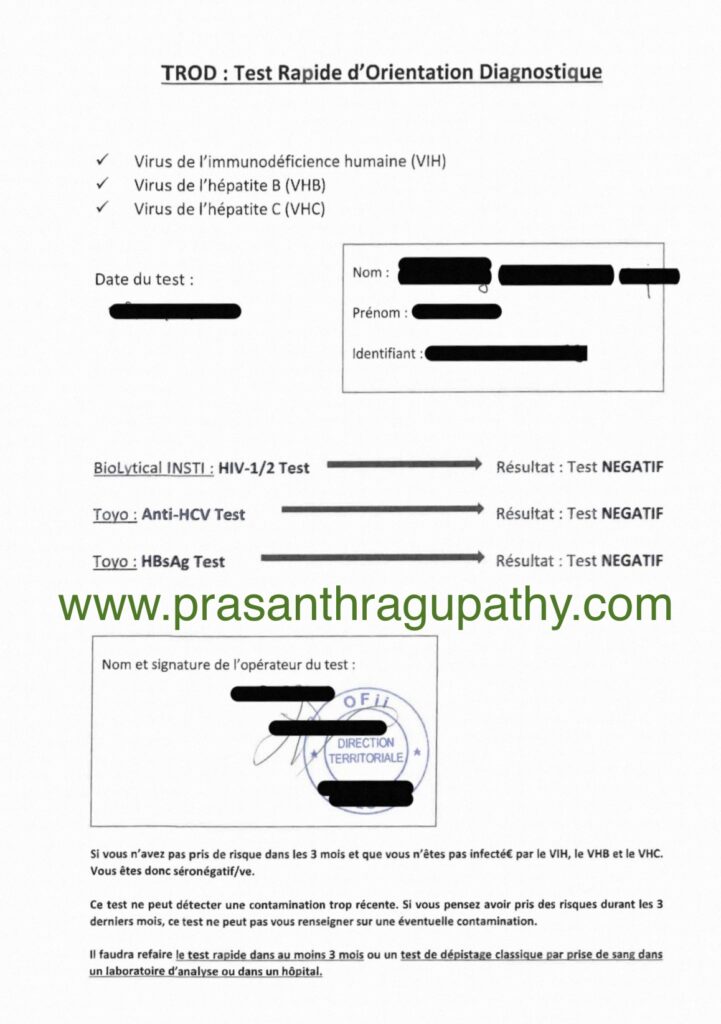
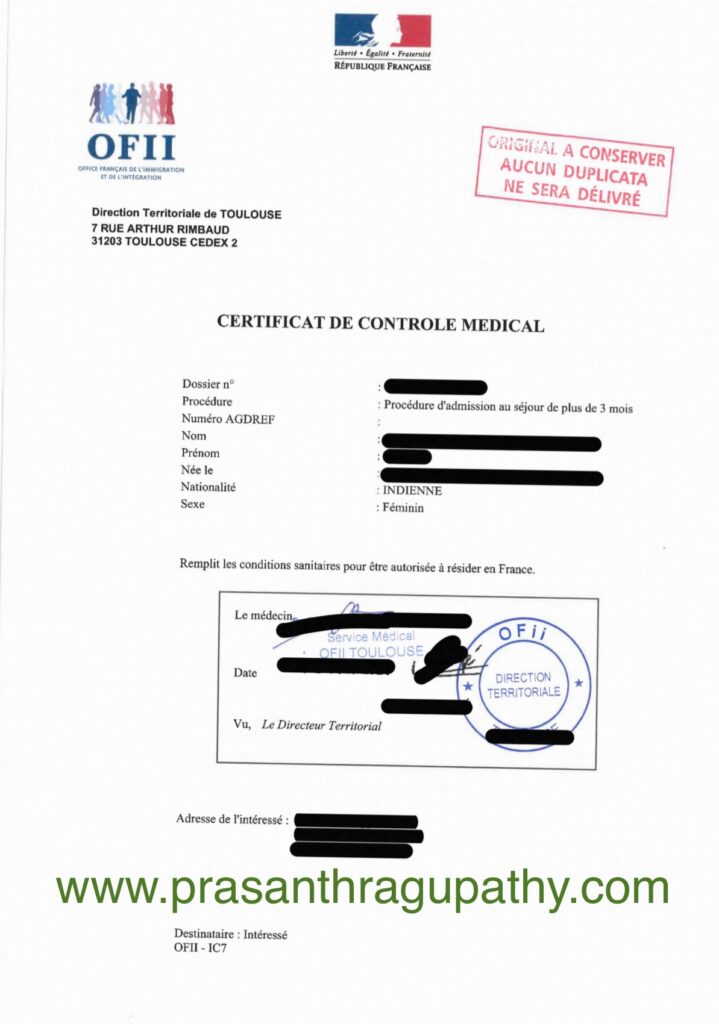
Support This Blog!
If you’ve found my articles helpful and you want to say thanks, a cup of coffee or two is very much appreciated!. Please help keep it going!
Part 2: My Experience with OFII’s Visite d’Accueil & Intégration
So, the big day arrived for my OFII Visite d’Accueil et d’Intégration, a key step in settling down in France. Here’s how it went down:
Documents Required: The invitation letter listed a few required documents, but being overly cautious, I carried a bit extra.
What they asked for:
- The OFII invitation email.
- My original passport.
- Proof of any courses or diplomas I’ve completed in France.
What I carried anyway, just in case:
- My Visa Validation Letter (Confirmation de la validation de l’enregistrement de votre visa long séjour valant titre de séjour).
- My education certificates.
- A French language certificate.
- Oh, and I had my Carte Vitale (Social Security Number) with me, which ended up being useful during the final round. Better safe than sorry, right?.
How the OFII Process unfolded?
1. First Stop: Entry Check. Walking into the OFII building felt a bit like airport security—papers out, ready for inspection!
At the entrance, they verified my invitation letter and passport. Then came the next checkpoint, where they checked names against their list and asked a few quick questions: How’s your French?. Have you completed any diplomas in French?. The waiting room had about 20 other candidates, and I couldn’t help but notice the mix of emotions—some looked nervous, others curious. The OFII officers started calling names one by one to confirm details.
2. Second Stop: The Briefing. Once everyone was settled, an officer outlined the day’s agenda:
- Signing the CIR (Contrat d’Intégration Républicaine), a contract that’s part of integrating into French society.
- A French language assessment—both written and oral.
- Scheduling the Civic Training sessions (more on this later).
3. Third Stop: The French Written Test. This part felt like being back in school. They handed out exam papers and gave us strict instructions: fill in your nom, prénom, and date, and wait for the signal to begin.
The test itself wasn’t too intimidating. We had 20 minutes to complete the following:
- A form to fill out with personal details like name, date of birth, and address.
- Two reading comprehension exercises with questions to answer.
- Writing responses to short, written dialogues.
- Drafting an email based on a given scenario.
Some questions were simple, while others made me scratch my head for a second. But overall, it was manageable.
4. Fourth Stop: The French Oral Test. Next, I sat down for the oral test. This felt more like a friendly conversation than an exam, which was a relief. The officer asked me basic questions like:
- What is your name?
- Where do you live?
- Where do you work?
- What is your educational background?
- What is your profession?
- How long have you been in France?
- What is your nationality?
I answered confidently, and it seemed to go smoothly. Honestly, it felt like they were more interested in getting to know me than grading my French.
Note from Prasanth: The written and oral tests are done only to evaluate your French language proficiency. Based on the evaluation, appropriate number of language class hours will be assigned. If you are evaluated to have A2 level, then the French language classes are not mandatory.
5. Final Stop: Auditor Assessment. This was the last step of the day. The auditor reviewed everything and completed a form to wrap up the process.
Here’s what happened: They checked the Salarie Visa stamp on my passport.
We discussed dates for the Civic Training sessions, which span three days (9:00 a.m. to 4:00 p.m.), with a fourth day scheduled later. Once we settled on the dates, I got the schedule instantly via email and SMS. They asked if I had an SSN number, and I was glad to have my Carte Vitale on hand.
What I walked away with?. At the end of the visit, they handed me two important documents to use for visa renewal:
- The signed CIR (Contrat d’Intégration Républicaine).
- A detailed report titled “Votre Parcours d’Intégration Républicaine”.
Overall, the experience was structured but not overly formal. The staff were professional yet approachable, and everything moved along smoothly. Sure, there was a bit of waiting, but it gave me time to observe and mentally prepare. It feels good to have another step of the integration process ticked off the list!
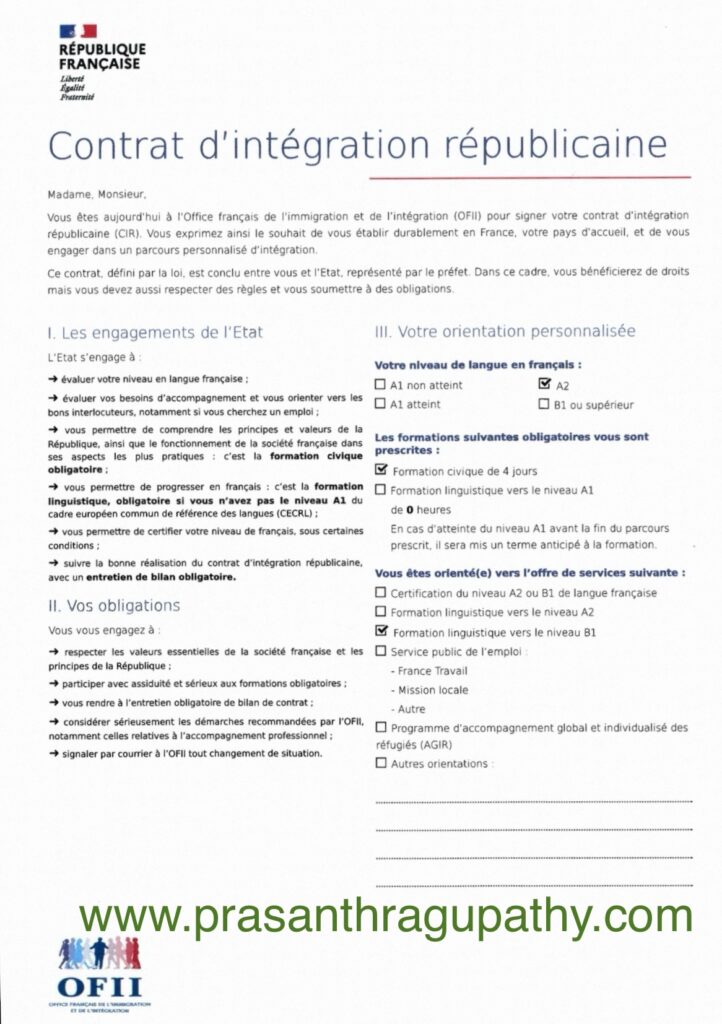
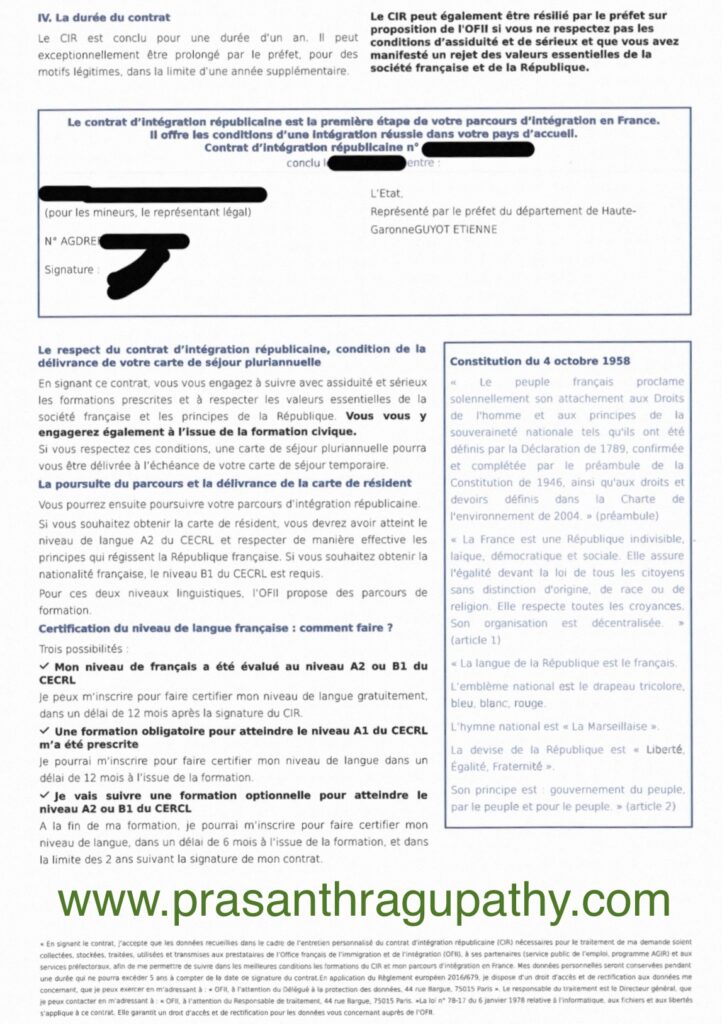
Support This Blog!
If you’ve found my articles helpful and you want to say thanks, a cup of coffee or two is very much appreciated!. Please help keep it going!

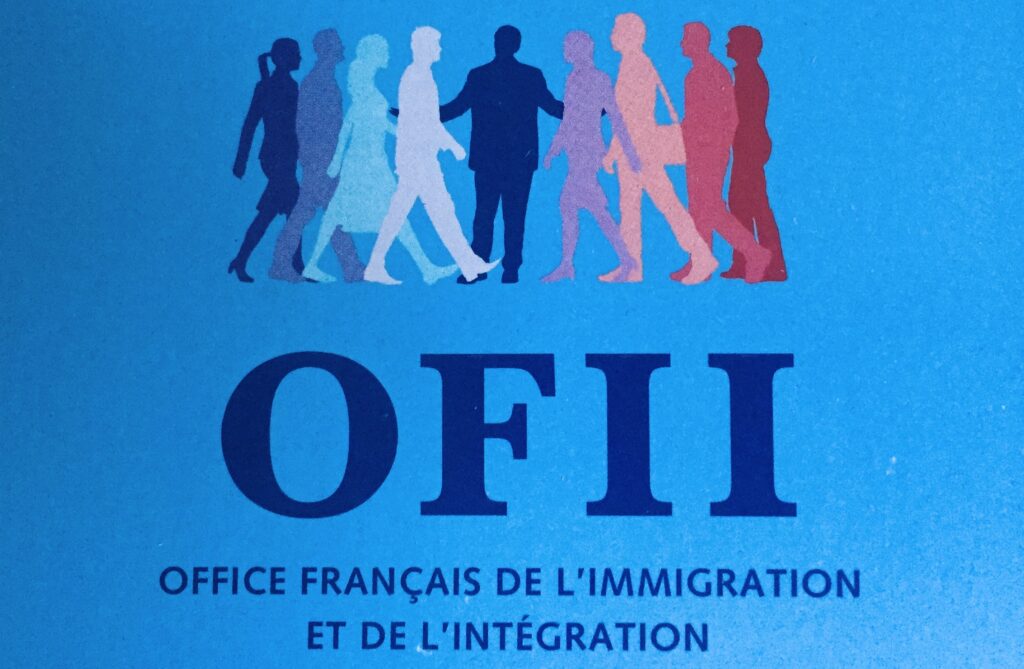

Does this procedure now also mandatory for the spouse with Talent Passport Family ?
Hello Chauhan,
Yes, the OFII process is applicable for almost everyone coming to France. Please check with your local OFII office.
Regarding the new language requirements, please refer to https://prasanthragupathy.com/2024/03/faq-new-language-requirements-for-french-resident-permits-citizenship/
French classes not required if the person proves A2 level during the language test, like this example. If not upto 400h of French classes can be applied, so the person completes A2 level.
Please refer to my detailed explanations about the new language requirements in https://prasanthragupathy.com/2024/03/faq-new-language-requirements-for-french-resident-permits-citizenship/
Hello, is the OFII process required for students studying at a french business school? I didn’t receive any invitation of such from the OFII office.
Hello,
The OFII process is slightly different for students. Please check with your school’s international office.
The language test & CIR aren’t relevant for you.